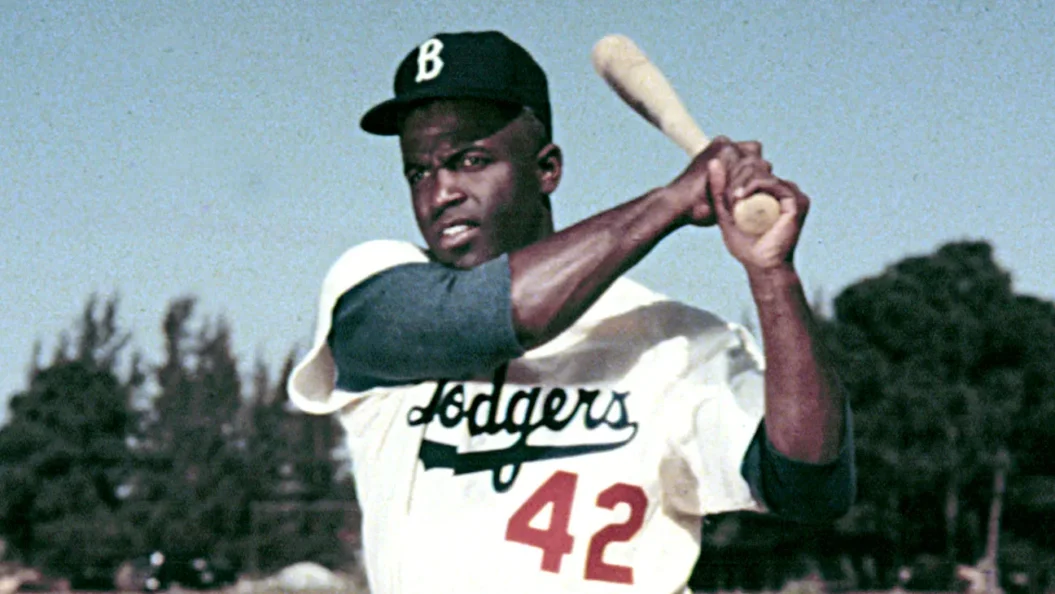Department of Defense Removes Jackie Robinson from Official Records, Eliciting Outrage and Reflection on Racial Legacy
In a controversial move that has ignited discussions around racial justice and historical preservation, the Department of Defense has removed references to Jackie Robinson’s military service from its official website. This decision aligns with a broader initiative to eliminate diversity, equity, and inclusion (DEI) efforts from federal agencies, a directive that critics argue ignores the very struggles that Robinson epitomized.
Jackie Robinson: A Legacy Beyond Baseball
Jackie Robinson is best known for breaking Major League Baseball’s color barrier in 1947 with the Brooklyn Dodgers, overcoming immense societal and institutional racism. However, his contributions extended beyond the baseball diamond. Robinson served as a 2nd lieutenant in the U.S. Army during World War II, where he faced significant racial discrimination. Notably, while stationed at Fort Hood, Texas, he was court-martialed for refusing to sit at the back of a bus, a situation that echoed the social injustices he would confront in professional sports. Although he was acquitted, the incident hindered his deployment to Europe.
The recent removal of Robinson’s military recognition follows an order issued by the Trump administration, which aimed to eradicate content promoting DEI initiatives—an agenda focused on fostering inclusivity and addressing systemic inequities. Pentagon Press Secretary John Ullyot’s assertion that “DEI is dead at the Defense Department” reflects a growing sentiment against these initiatives within various government sectors, deeming them incompatible with military cohesion and effectiveness.
Broader Implications and Controversies
Robinson’s erasure from the Pentagon’s archives is not an isolated incident. Other figures, such as civil rights icon Medgar Evers, have also been omitted from military records under this new directive. This revocation has prompted questions about the Department of Defense’s commitment to recognizing contributions from diverse backgrounds, particularly those who have fought against racial injustice.
In response to this growing concern, President Trump has proposed establishing a “National Garden of Heroes” that would honor historical figures, including Robinson. Critics, however, point out the irony of commemorating Robinson symbolically while simultaneously erasing his real contributions from military history.
Pentagon spokesman Sean Parnell further convolutes the narrative by claiming that the notion of diversity as a strength within the military is “incorrect,” emphasizing shared purpose and unity instead. This stance raises questions about the military’s historical role in reflecting the diverse tapestry of American society.
Cultural and Historical Significance
The historical significance of Jackie Robinson’s life and career goes beyond baseball; it embodies the ongoing struggle for civil rights and racial equality in America. His story is a vital part of not only sports history but also American history, illustrating the challenges faced by African Americans during the mid-20th century and beyond.
As contemporary America grapples with issues of racism and equality, the selective preservation of history becomes more pronounced. The removal of Robinson’s military past from official records serves as a stark reminder of ongoing racial tensions and the political motivations that influence historical narratives.
Despite these setbacks, Major League Baseball continues to honor Robinson’s legacy, with his jersey number 42 permanently retired across the league, and Jackie Robinson Day celebrated annually. These tributes reaffirm the impact of Robinson’s contributions to sports and society, but his diminishing visibility within military history highlights the complex dynamics at play in America’s continuing fight for racial justice.
In conclusion, the Department of Defense’s decision to erase Jackie Robinson from its archives underscores a troubling trend in the selective interpretation of history. As discussions about DEI initiatives and the fight against systemic racism persist, the legacy of figures like Robinson remains as relevant as ever, emphasizing that the battle for racial equality is far from over.
For those interested in learning more about Jackie Robinson’s impact, his story is celebrated through various platforms, reinforcing the importance of remembering history, not just as it is told, but as it truly happened.









